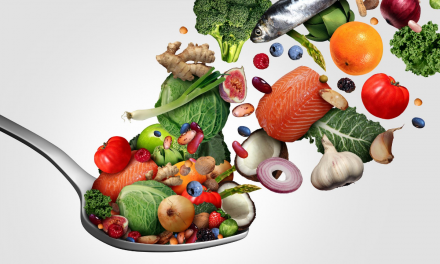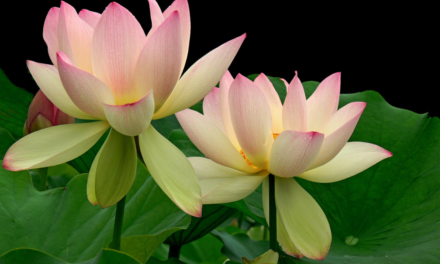Harmonize Your Inner Climate with the Season
Have you noticed the relationship between the seasons and your personal health? Your mental outlook, emotional state and physical health flow with the cycles of nature. Learning to flow your energy as nature does through the seasons can insure vibrant health and emotional harmony. How well you transition through the seasons is a good indicator of how balanced your health is.
Winter is the end of all seasons with wetter, shorter days, and colder temperatures. Nature is hiding in her roots; its energy is descending and contracting. It’s natural to follow the same patterns of change within nature. We experience the cyclical changes of nature internally within us.
Just as climates exist within the seasons, climates exist within you. When your inner climate is in harmony with the season good health will prevail.
Even though some climates experience less dramatic climactic changes, it is still important to adopt nutritional and lifestyle patterns that are in harmony with the season.
It’s time to shift to the quiet, inward, descending energy of winter. It is the season of rest, storage and preparation, and for protecting the reserves gathered in the harvest. Over the winter months, we draw on those reserves to prepare for the rapid growth of spring.
The Chinese health philosophy and its theory of the Five Elements provide a good understanding of how nature and your body mirror each other. According to this wisdom, each season relates to specific organs in the body and corresponding emotions. Smooth seasonal transitions are crucial to your wellness and tend to be times when many experience more intensity in chronic health conditions, greater stress, and physical difficulty.
Winter is Ruled by the Water Element
The TCM corresponding organs to the winter season and those most affected are the kidneys and their complementary organ, the bladder. According to the Chinese Health Philosophy, the adrenal glands, which sit on top of the kidneys, are controlled by the kidneys. Adrenals contribute to the warmth, energy, and sexuality of the body.
The kidneys regulate water balance in the body. They are the foundation of fluids, energy, and heat for all of the organs. Any imbalance in blood chemistry has a strong effect on the kidneys since one of their functions is the filtering of toxic or potentially toxic substances for excretion. An overconsumption of fluid taxes the capacity of the kidneys to filter.
The health of bones, bone marrow, knees, lower back, teeth, head hair, hearing, urinary tract, sexual organs, and reproductive functions are all governed by kidneys.
Symptoms of Kidney and Water Element Imbalances
- Metabolic imbalances
- Low thyroid function
- Poor circulation
- Anemia
- Certain types of arthritis pain
- Hearing loss
- Ear infections
- Head hair problems—hair loss, premature graying,
- Urinary tract problems
- Sexual and reproductive problems, including infertility
- Bone problems including osteoporosis
- Teeth problems
- Lower back and knee problems
- Premature aging
- Fear, phobias, paranoia, insecurity, negativity
These health disharmonies worsen during the winter months if you are not eating and living in harmony with the season.
Winter Nutrition
Following nutritional practices that improve the health of these organs will help you experience more balance and harmony in the winter months.
The kidneys are especially vulnerable to abuse through consumption of cold foods and drinks such as ice cream, cold soda, and cold alcoholic beverages, juices and smoothies, especially when they have a high concentration of sugar. Use of raw food should be minimized or eliminated, depending on one’s condition. Raw foods are cooling and are best eaten to balance the heat of warmer months.
Toxic diets, chemical additives, and heavy meat eating cause the kidneys to become contracted. This results in faulty cleansing by the kidneys which increases fluid in the body putting stress on the heart. Excessive meat and food additives clog the vascular system and contribute to high blood pressure and weaken the heart.
Cooking food helps to maintain digestive balance and provide warmth. In winter it’s best to incorporate longer cooking times at lower heat. Roasting, baking, pressure cooking, and broiling create more heat in the food and are more suitable for the winter months.
Therapeutic Winter Foods
Your winter diet should be warming and include more substantial foods such as hearty soups and stews. baked root vegetables and zesty split soup are good choices. For those who are very weak, stews made from small amounts of good quality beef, poultry or fish are helpful.
Kidney beans, mung beans, black beans, and adzuki beans all benefit the kidneys and related organs and should be eaten regularly in the winter. Emphasize root vegetables such as turnips, parsnips, carrots, potatoes, yams, burdock, rutabaga, and onion. Winter squashes such as butternut, acorn, and pumpkin are health-supportive additions to the winter diet. Try my Black Bean Chili
Use whole, unrefined grains, especially oats, sweet brown rice, buckwheat, millet, quinoa, barley and brown rice as staples. They will provide you with consistent energy, harmonious emotions, balanced blood sugars, and good colon health. Sweet and Savory Oats recipe here
Warming culinary herbs and spices are beneficial during winter. Include ginger, garlic, turmeric, cumin, cinnamon, nutmeg, black pepper, horseradish, cloves, cardamom, mustard seeds, rosemary and spearmint. These improve circulation, digestion, and keep you warm.
To improve immunity, use chlorophyll-rich foods including all dark leafy green vegetables such as kale, bok choy, collard greens, watercress, mustard greens and turnip greens. These contain immune-enhancing, anti-inflammatory properties.
Incorporate medicinal mushrooms in your cooking. Dried shiitake mushrooms increase resistance to infections caused by certain bacteria, viruses and parasites, and improve immunity. Dried Maitake mushrooms possess immune-boosting substances and retard the progression and spread of tumors. Although these mushrooms are available in supplement form, I prefer to use them in cooking. The dried varieties are more concentrated in therapeutic properties. You can use shiitake and/or maitake in soups, stews, vegetable dishes, or cooked with whole grains. Learn more about medicinal mushrooms here
Salt is the Flavor of the Season
The system of flavors, developed by traditional Chinese healers, assigns specific flavors to organs and systems of the body, and their related season. The salty flavor is associated with the water element, and enters the kidneys. Salt moves energy downward and inward and attunes us to the colder seasons.
This important mineral is vital to human life. Too much of it causes water retention, high blood pressure and kidney and heart problems. According to Chinese Physiology, proper use of salt will strengthen the health of the kidneys, urinary tract, adrenals, bones, bone marrow, teeth, fluid metabolism, hair, and sex organs.
Salt is grounding and centering in nature. The right amount and quality can strengthen energy; build healthy bones, improve digestion; moisten dryness; detoxify poisons from poor quality foods. It can enhance your ability to focus more clearly. However, there is great potential for its misuse. Poor quality salt and too much of it creates the opposite effect.
Most commercial salt is the highly refined chemical variety that is 99.5% or more sodium chloride, with additions of anti-caking chemicals, potassium iodide, and sugar to stabilize the iodine. Common table salt is refined through heat processing, bleached with chemicals to make it white, then aluminum stearate, another chemical, is added so the salt doesn’t clump. Most salt is denatured as are most foods in the modern diet.
Please read my post, Salt – Friend or Foe to learn more about balanced use of salt; smart alternatives to the salt shaker; and what your salt cravings are telling you.
Emphasizing the foods in this article will harmonize your blood quality and improve health imbalances related to the water element and the winter season. They will keep your immune system strong and increase your resistance to disease. Of course, it’s equally important to minimize fatty, heavy, congesting foods, and to eliminate intoxicants and chemicals.
Lifting Winter Blues
Within the Five Transformation Cycle of TCM, certain psychological and emotional tendencies result from imbalances in the organs. The kidneys rule these emotions: fear, insecurity, and paranoia. These emotions will intensify during the winter in those with energetically weak kidneys.
Do you experience phobias, anxiety about life, paranoia or negativity in general? Are you always expecting the worst and consumed by worry? Are you withdrawn or lacking in confidence? Do you move from one problem, place or relationship to the next without ever getting to the root issues? These are all aspects of kidney imbalances resulting, in large part, from under use or misuse of salt and other minerals, and from poor quality, denatured foods and inappropriate foods for the season. When the kidneys are overstressed or too cold, your emotions will suffer the consequences.
When this element is strong and healthy, you feel confident, stable, courageous, curious, adventurous, and optimistic. Your will is strong, you experience right timing in life, a healthy sex drive, are independent, and have a healthy imagination and the ability to actualize what you imagine for you life. You can accomplish a great deal without stress, are active, yet calm, and understand the importance of balancing action with nurturing.
All physical, mental and emotional problems are contributed to by the foods you consume. Balanced intake of good quality salt and other minerals from food will improve kidney health and related emotional disharmonies. What you eat directly affects the way you think and perceive, and your emotional state. Conversely, negative mental and emotional states weaken physical health. Taking special care to nurture the kidneys will help to resolve many emotional issues, including Seasonal Affective Disorder.
Effective professional herbal formulas for anxiety and depression here
Winter encourages introspection, and it is a good time to work on creating an emotionally safe foundation and a sense of security from within. It may be helpful to embark on Attitudinal Healing or other types of counseling with a professional.
Practices for Winter Radiance
- Elevate your spirit with a meditation practice or
- Engage in anything that uplifts and inspires you.
- Find a personal, emotional and spiritual support system.
- Believe in yourself. Select clearly defined projects which you know can be successfully accomplished and pursue them to completion.
- Cultivate friendships with those who are warm and compassionate.
- Work and play at a creative project.
- Go to bed early and get plenty of sleep. You need more in the winter.
- Keep warm.
- Get deep massage or other therapies for releasing subconscious, hidden emotions.
- Slow down; relax and reflect.
- Learn and practice deep, diaphragmatic breathing.
- Don’t let your exercise habits hibernate. Yoga and Tai Chi are excellent forms of exercise that encourage deep breathing.
- Brisk walking is beneficial in every season and helps circulation and joint health.
Your body, mind, emotions and the environment are not separate and are mimicking each other. Seasonal changes are an opportune time to strengthen your whole health. When the dark days of winter descend you don’t have to suffer. Take your cues from the natural environment. When you adapt yourself to winter transitions through an environmentally balanced diet and lifestyle, you will maintain good health at every level.
Consider some professional guidance for the right nutrition and holistic health plan for you. You can greatly improve every aspect of your physical, mental and emotional health with a customized holistic approach. Schedule a Holistic Health and Nutrition Session with Deborah Barr, 35-year Holistic Health and Nutrition Counselor. You’ll be on your way to better health. Sessions can be done by phone, zoom, skype, or at Pittsburgh office.
All articles and information on this website are protected under copyright laws and are owned by Deborah Barr, Whole Health Resources. You may use this article in your print or electronic publication at no charge. I ask that you contact me letting me know in what publication you will use my article and when it will be published. You are required to use bio and copyright information at end of each article and mail a copy of the publication or link to online publication to me once published.
If you are in need of additional articles or fresh article ideas, contact me. I will be happy to discuss some relevant article topics.





